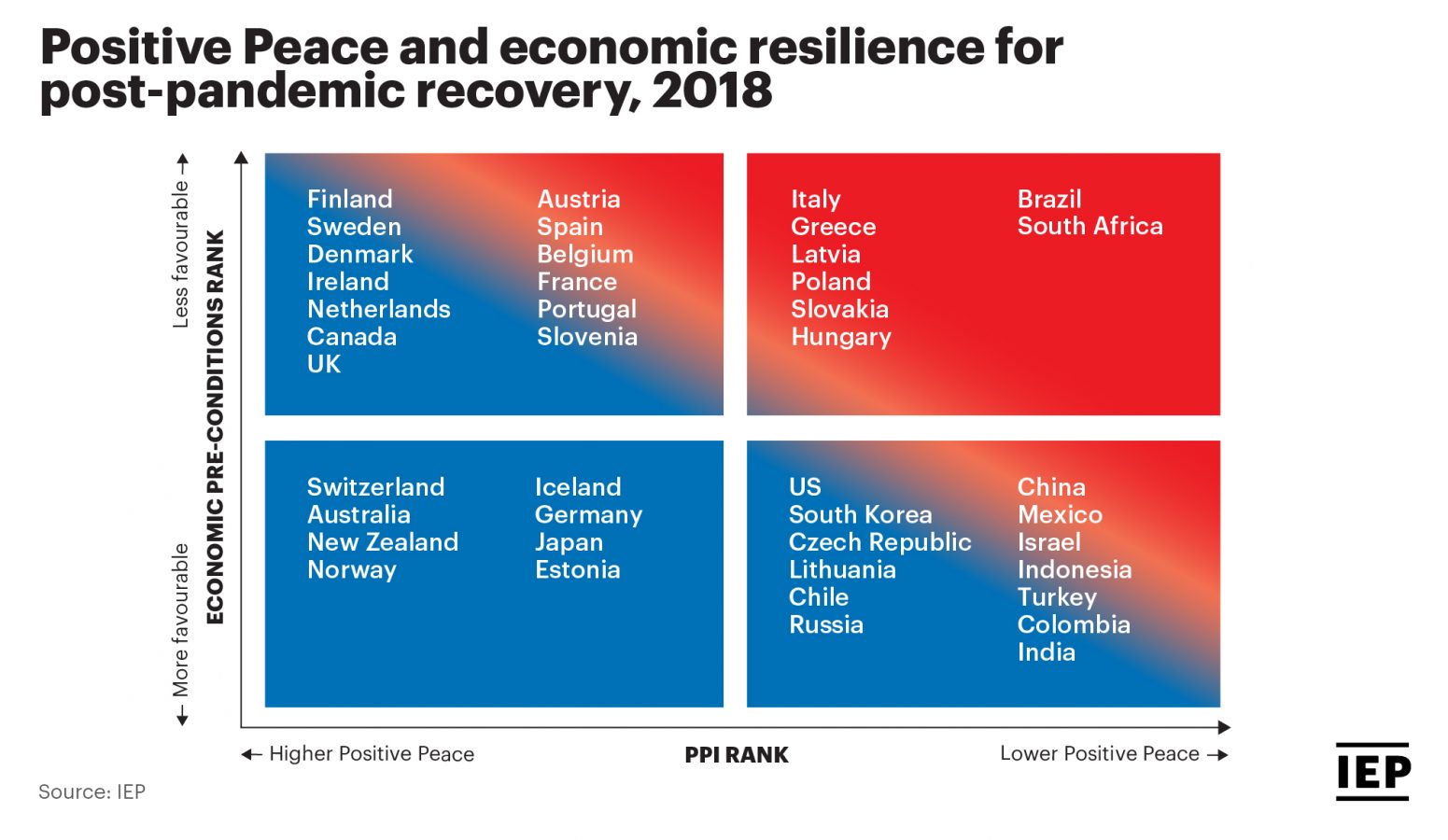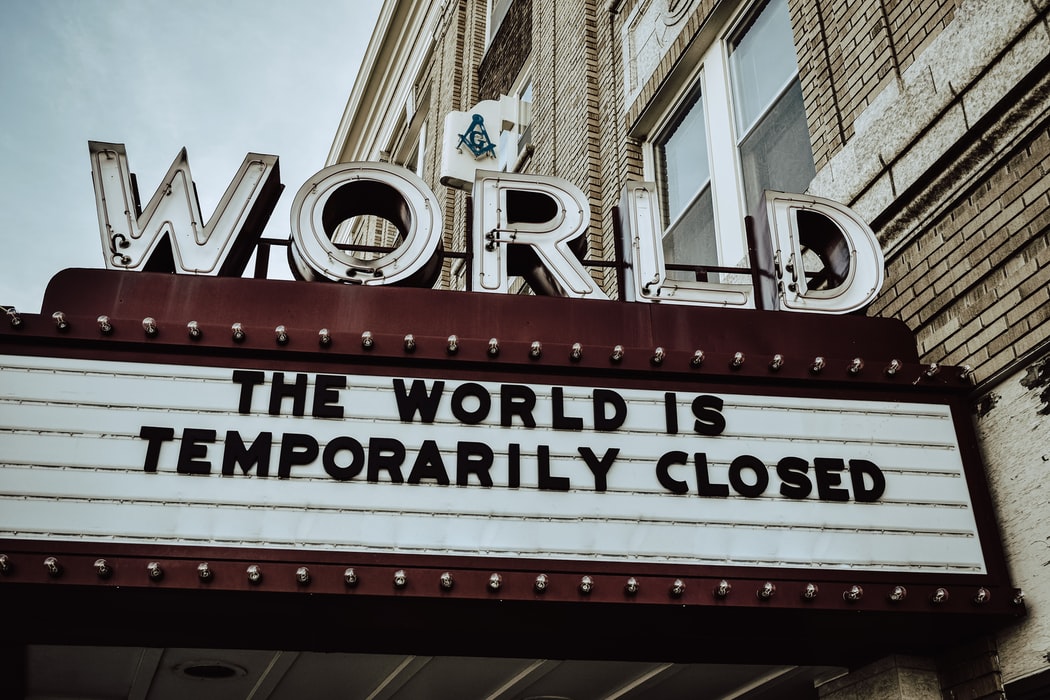While the full economic consequences of the COVID-19 pandemic will not be known for some time, there are pre-existing factors that may help countries along the path to recovery.
Countries with high levels of social resilience and favourable economic conditions before the pandemic, may fare better in the long term.
Research by the Institute for the Institute for Economics and Peace (IEP) suggests that high levels of Positive Peace, guaranteeing effective institutions, social cohesion and transparent, representative governments will be helpful in the economic recovery process for countries around the world.
Some countries combine favourable economic pre-conditions for a recovery after the pandemic with higher levels of Positive Peace such as:
These countries will be better positioned to implement robust post-pandemic recovery programs.

Countries with low levels of central government debt will be able to borrow, and mitigate the economic downturn during the crisis by funding post-pandemic recovery initiatives.
Low tax burdens mean that central authorities will have some leeway to increase taxation in the medium term to help fund budget deficits enlarged by the crisis, which may decrease the risk of economic instability.
Low levels of unemployment, especially long term, mean that the labour market is resilient and agile, facilitating the re-training and re-allocation of workers to a new post-pandemic business environment.
Countries with low dependence on international trade may be able to navigate the disruption of international logistics caused by COVID-19. A possible future reduction in international trade as countries attempt to reduce reliance on manufacturing from East Asia.
The World Trade Organisation is expecting international trade to fall by between 13 and 32% in 2020 as the COVID-19 pandemic disrupts normal economic activity.
Positive Peace is defined as the attitudes, institutions and structures that create and sustain peaceful societies.
IEP uses its own Positive Peace model to measure the level of socio-economic development of a society and gauges its resilience, prospects for economic development and its ability to resolve grievances without resorting to violence.
